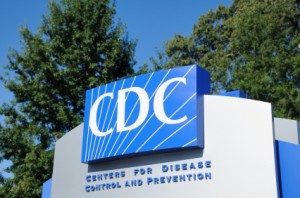 ATLANTA, GA – The Centers for Disease Control and Prevention reported 19 more cases of fungal meningitis infections connected to contaminated steroid injections on Tuesday. That brings the total to 233 in 15 states. Fifteen have died. The newest cases were reported in: Florida, 2; Indiana, 2; Maryland, 1; Michigan, 1; New Hampshire, 2; New Jersey, 2; Ohio, 2; Tennessee, 6; Virginia, 1.
ATLANTA, GA – The Centers for Disease Control and Prevention reported 19 more cases of fungal meningitis infections connected to contaminated steroid injections on Tuesday. That brings the total to 233 in 15 states. Fifteen have died. The newest cases were reported in: Florida, 2; Indiana, 2; Maryland, 1; Michigan, 1; New Hampshire, 2; New Jersey, 2; Ohio, 2; Tennessee, 6; Virginia, 1.
Fungal meningitis is rare and usually the result of spread of a fungus through blood to the spinal cord. Although anyone can get fungal meningitis, people with weak immune systems, like those with AIDS or cancer, are at higher risk.
The cases being reported by the CDC are all linked to joint-pain steroid injections sold by the now-closed New England Compounding Center (NECC) in Framingham, Mass. The Food and Drug Administration announced on Monday that the New England Compounding Center is also the focus of federal warnings about other drugs it makes that may be linked to new infections.
Health officials have identified one case of meningitis potentially associated with an injection of a different NECC steroid for joint pain. Another case involved a patient who got a fungal infection after receiving another NECC drug during surgery. Investigators don’t yet know if the infection is linked to the NECC drug.
At s of today, the FDA says it doesn’t know how many patients might have been exposed to the possibly contaminated drugs. NECC made about 1,200 products, all of which are listed on FDA’s website.
More than 90% of patients who had potentially been exposed to the contaminated steroid injections had been notified, said Melissa Dankel, of the Centers for Disease Control and Prevention’s Division of Healthcare Quality Promotion. Now they must wait to see whether they develop meningitis symptoms.
Signs and symptoms of fungal meningitis may include the following:
- Fever
- Headache
- Stiff neck
- Nausea and vomiting
- Photophobia (sensitivity to light)
- Altered mental status
Diagnosing meningitis requires a lumbar puncture (spinal tap), which involves inserting a needle into the spinal cord to remove fluid to be tested.
Fungal infections develop slowly and require weeks for symptoms to appear. In this outbreak, the CDC reports, symptoms have typically appeared between one and four weeks following the contaminated injection. Health officials, however, warn that longer periods of time between injection and onset of symptoms have also been reported.
Complicating treatment for patients is the fact that anti-fungal medication given to treat the infection is itself potentially toxic and must be administered carefully. Even though it is an oral drug, the initial treatment must be done in the hospital so patients can be monitored for possibly dangerous side effects. After the initial treatment patients can take subsequent doses as outpatients.
Representative Edward Markey (D-Mass) asked the Department of Justice to investigate whether the New England Compounding Center also violated laws related to the sale of controlled substances. On the list of recalled NECC products are nearly 1,000 formulations that contain controlled substances including cocaine, morphine, and ketamine. Such formulations can only be sold by pharmacies registered with the federal Drug Enforcement Administration.
“This is a matter that I believe requires further investigation by the DEA to ensure that this facility, already believed to have broken Massachusetts state law, has not also skirted federal law related to controlled substances,” Markey said in the letter to the Justice Department.
 Off The Grid News Better Ideas For Off The Grid Living
Off The Grid News Better Ideas For Off The Grid Living



